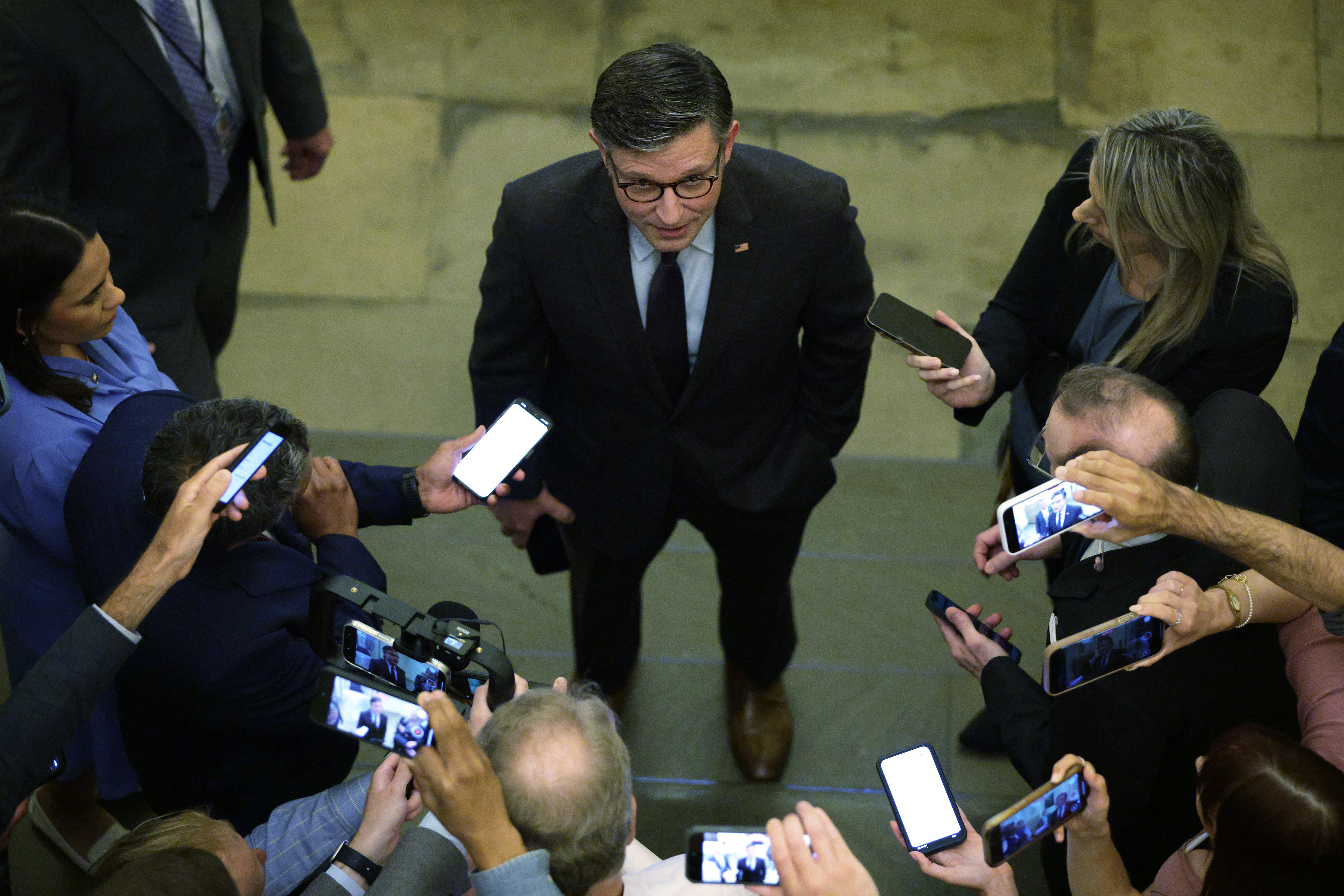President Donald Trump on Tuesday pushed back on demands from Republicans who have threatened to sink his giant tax bill if the legislation does not significantly boost the state and local tax deduction, said Representative Mark Amodei of Nevada.
In a private meeting with House Republicans, Trump singled out the lawmakers from New York, New Jersey and California who have rejected the $30,000 deduction limit — three times the current cap — contained in the legislation moving through the House.
“He wants to leave it where it is, that’s basically what he said,” Representative Bruce Westerman of Arkansas said of the SALT provision in the bill after the meeting.
The confrontation came moments after Trump told reporters the SALT deduction benefits Democratic states and politicians, signaling that the tax break, which predominantly benefits high-tax states like New York, New Jersey and California, isn’t a central concern of Republicans.
“It’s not a question of holdouts. We have a tremendously unified party,” Trump said Tuesday before meeting with lawmakers. “There’s some people that want a couple of things that maybe I don’t like or that they’re not going to get.”
Still, Trump has repeatedly pledged bigger SALT deductions, which were limited in his first-term tax cut bill. A faction of Republicans from high-tax states have threatened to sink Trump’s agenda over SALT. Trump, however, shrugged off those concerns.
“There are one or two points some people feel strongly about, but maybe not so strongly,” Trump said ahead of the meeting.
House Speaker Mike Johnson met with those SALT holdouts late Monday, but left without an agreement.
Representative Nick LaLota, a New York Republican, said House leaders offered a SALT proposal that would temporarily raise the cap higher than the $30,000 in the draft bill, before reverting back to the lower level.
“Any proposal that has the cap falling off a cliff is unacceptable to me,” LaLota told reporters Tuesday morning. “Now is the time to get it right.”
Another New York Republican, Mike Lawler, told reporters there is no SALT deal and a vote on the bill — planned for as soon as Wednesday — will fail without one.
Johnson was more positive about the chances for a deal. He still plans for the House to vote on the package by the end of the week.
“We’re going to get an agreement on everything necessary to get this over the line,” he said Tuesday.
The bill approved last week by the House tax committee sets a $30,000 cap for individuals and couples. That draft called for phasing down the deduction for those earning $400,000 or more, a plan quickly rejected by several lawmakers who called it insultingly low. The current writeoff is capped at $10,000.
Stephen Miran, who chairs the White House Council of Economic Advisors, said he was confident Trump would be able to quickly reach a deal on SALT with House Republicans.
“The president will deliver SALT relief to American households. I don’t know exactly what the number will shake out,” Miran told Bloomberg Television on Tuesday. “The president is one of the best negotiators in history and he’s shown over a career spanning decades that he can forge hundreds of deals and I think he’ll forge another one right in front of us now.”
The holdout lawmakers — who also include New York’s Andrew Garbarino and Elise Stefanik, New Jersey’s Tom Kean and Young Kim of California — have threatened to reject any tax package that does not raise the SALT cap sufficiently.
Garbarino said Johnson made the group several offers and that they’re awaiting more analysis Tuesday morning.
“I’m just happy we’re having the discussion and they’re working with us,” Garbarino said.
Republicans are also squabbling over spending reductions in the bill, including weighing cuts to Medicaid health coverage and nutritional programs for low-income households.
They are trying to keep revenue losses from their tax-cut package down to a self-imposed limit of $4.5 trillion over 10 years. The current package has a $3.8- trillion revenue loss.
— With assistance from Jamie Tarabay, Jonathan Ferro, Skylar Woodhouse, Catherine Lucey, Jack Fitzpatrick, Steven T. Dennis and Ari Natter.


 Economics1 week ago
Economics1 week ago
 Economics1 week ago
Economics1 week ago
 Personal Finance6 days ago
Personal Finance6 days ago
 Economics5 days ago
Economics5 days ago
 Economics1 week ago
Economics1 week ago
 Personal Finance1 week ago
Personal Finance1 week ago
 Economics4 days ago
Economics4 days ago
 Personal Finance1 week ago
Personal Finance1 week ago












